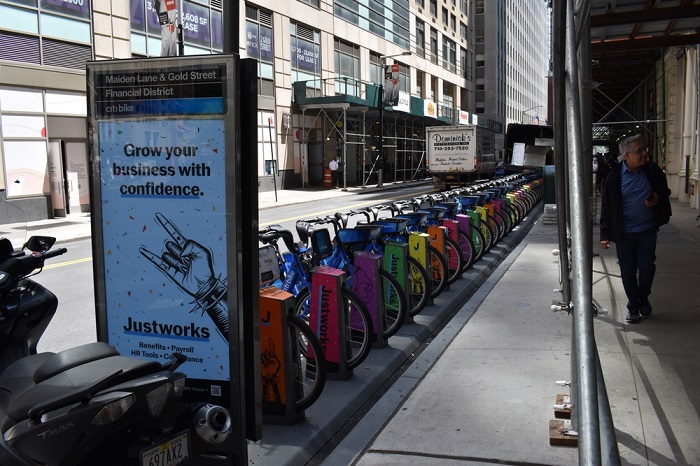Transitioning from the tranquility of a rural area to the bustling streets of a city can be both exhilarating and overwhelming. Whether it’s for a job, education, or just a change of scenery, moving to an urban environment involves adjusting to a very different way of life. This guide will walk you through the essential tips to help you acclimate to your new city lifestyle smoothly and effectively.
Research Your New City
First, familiarize yourself with the urban landscape by researching your prospective city’s cost of living, public transportation systems, and available amenities. Each city has its unique character and knowing what to expect can help you prepare mentally and financially for the shift.
Part of your research will involve finding the right neighborhood for you. Choosing where to live in the city can greatly affect your daily life. Look for a neighborhood that not only fits your budget but also your lifestyle needs. Consider factors such as proximity to work, safety ratings, access to public transportation, and the type of community activities available.
Prepare Your Budget
One important thing to remember about city life is this: It’s not cheap!
City living often comes with a higher price tag compared to rural areas. Prepare for higher costs associated with housing, groceries, and entertainment. Creating a detailed budget that accounts for all your expected expenses can prevent financial surprises.
Investigate if there are any city-specific subsidies, housing discounts, or transportation passes that can help mitigate some of the costs of urban living. Many cities offer programs designed to help residents thrive.

There are certain expenses you probably haven’t incurred as a rural resident. From public transportation and paid parking to higher prices on groceries and nightlife, city living comes at a cost. You have opportunities to save money, but it’s crucial to document your finances to ensure you’ll be able to live the lifestyle you envision without breaking the bank.
Downsize Before You Move
Space is at a premium in the city, so there’s a good chance that your new home will be smaller than your old one.
You may have to transition from ample closet and storage space to an area with only a few closets or even stackable bins in an already crowded room. It’s important to familiarize yourself with personal storage space, as well as in your building or local storage rental.
Buildings often have a bike room or storage rental area for residents who need extra space. You can also find storage units around the city to rent on a monthly or annual basis. If you’d rather avoid these extra costs, donate or toss out any unwanted items before you pack up your home. From unworn clothing to broken or damaged items, it’s natural to keep things if you don’t have a reason to get rid of them right then and there. A move to a city is the perfect opportunity to purge any unwanted items and start fresh. It’s also a great time to help people in need through local charity donations.
Identify Transportation Options

In your rural area, you were probably used to driving long distances, even for everyday errands. In a city, many of your commutes may end up on foot or via public transportation, depending on your preference or location. From trains and subways to buses, scooters, and bikes, cities offer the transportation means to help you explore opportunities outside your car. Expensive parking, lack of space, higher gas prices, and traffic may deter you from driving. In fact, many city residents sell their cars to save money on gas and parking.
You may think you can’t live without your car. However, it’s important to shift your mindset and weigh the pros and cons of transitioning to public transportation or shared ride options. It’s easier to give up space or your local restaurant than it is to sell your car, but you should understand the benefits that come with the change.
Find Ways to Cope With Noise and Other City Nuisances
The constant noise and activity can be one of the biggest adjustments when moving from a rural area to a city. Invest in soundproofing your home where possible, and seek out local parks and quiet cafes where you can get a respite from the urban hustle.
Maintain your mental health by finding routines and spaces that provide tranquility and relaxation. Whether it’s a weekly visit to a nearby park or practicing meditation, find ways to balance the fast-paced city life.
Find the Advantages of City Life
Moving to the heart of a city seems appealing, but it could lead to culture shock if you’re not used to the hustle and bustle. It’s always a good idea to experience city life before committing to a full-on move. Rent an Airbnb or VRBO, book a hotel, or stay with friends you already have in the area. If you’re looking to move to a new state, you should find the best state to suit your anticipated new lifestyle. Plan your day like you would as a resident as opposed to a tourist, and envision what it would be like to create new routines in a new area.
Instead of booking the trendiest restaurant in town, grab groceries and cook for an evening. That way you’ll understand what a typical evening after work may feel like, instead of as a vacation in a new city. You may also want to map out your commute to the office, gym, and doctor’s clinics to ensure you’re fully prepared for the move.
Another area many people may overlook is finding the best options for phone, internet, and cable service in your intended residential area. When you’re testing out your new city, it’s worth exploring these services in case you decide to switch providers or find a new one and understand any hidden internet charges you weren’t anticipating.
Meet New Friends
The last thing you want to do is pack up, move, and then realize you feel alone in a massive city. Consider joining a local gym, finding networking opportunities in your area or through your business, or joining meet-up groups or connection platforms. There are convenient and plentiful ways to ensure you won’t feel alone or distant from people who share your interests.
Dive into the city’s cultural scene to fully embrace your new environment. Attend local events, festivals, and shows to appreciate the vibrant diversity and dynamic atmosphere of urban living.
Join local groups or networking events to meet new people and build connections in your new city. Whether it’s through sports, hobbies, or volunteer work, finding a community can make your new city feel like home.
Stay Safe in the Big City
Stay aware of your surroundings and get acclimated to city safety protocols. Understanding the dos and don’ts in your new urban environment can help keep you safe.
Make sure your new home is secure. Invest in good quality locks and consider a home security system to protect yourself and your belongings.



